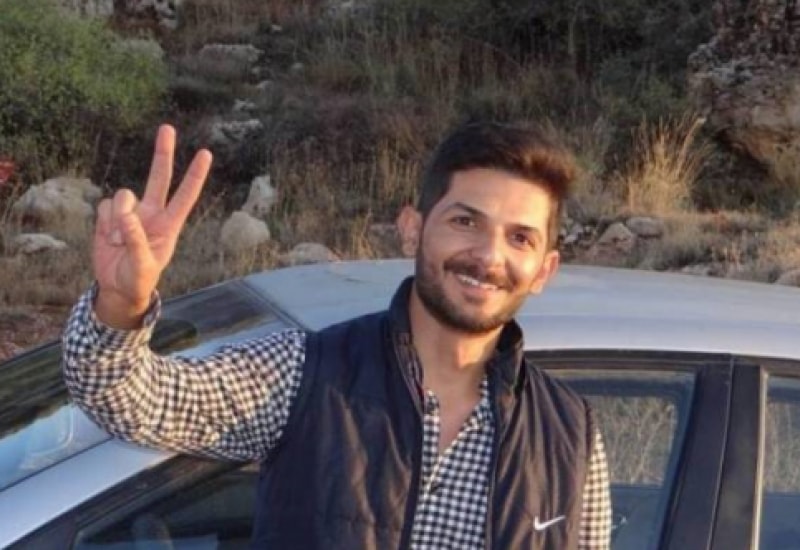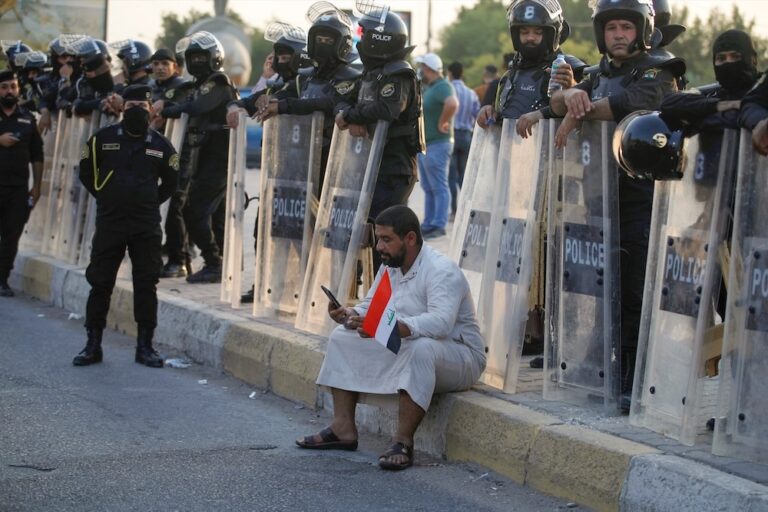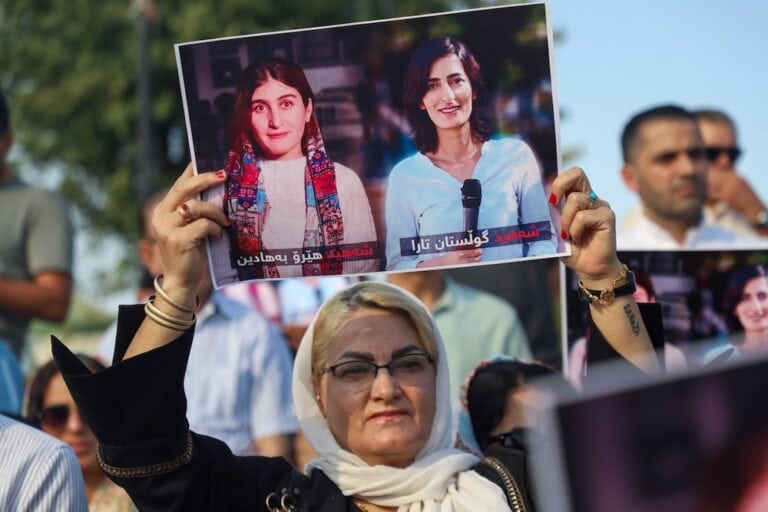One day after the brutal murder of a Kurdish report in Dahuk, a TV cameraman died while covering fighting between Kurdish forces and ISIS near Mosul.
This statement was originally published on rsf.org on 16 August 2016.
Reporters Without Borders (RSF) condemns a Kurdish reporter’s brutal murder on 13 August in Dahuk, in the northeast of Iraqi Kurdistan, and a TV cameraman’s death the next day while covering fighting between Kurdish forces and Islamic State near Mosul.
Widat Hussein Ali, a 28-year-old reporter for RojNews, a news agency that supports the Kurdistan Workers Party (PKK), was kidnapped and then murdered. According to local media reporters, he was abducted in the morning and his body was found at the side of a road shortly after midday with marks suggesting that he may have been tortured to death. Nevertheless, the motive is still unknown. The Dohuk police said they have opened an investigation. The murder was also firmly condemned by the UN secretary-general’s deputy special representative for Iraq.
Mustafa Saeed, a cameraman with Kurdistan TV, a satellite TV channel owned by the Kurdistan Democratic Party (PDK), was killed on 14 August while covering the fighting in the east of the city of Mosul (400 km north of Baghdad) between Islamic State and kurdish forces.
He and Kurdistan TV reporter Hayman Nanqli, who was badly injured, were embedded with Kurdish security forces.
RSF urges the authorities to do everything possible to shed light on these crimes and to ensure that those responsible for the violence are brought to justice.
“Although journalists in Iraqi Kurdistan are often the victims of threats, intimidation, attacks and arbitrary arrest, little action is taken to render them justice,” said Alexandra El Khazen, the head of RSF’s Middle East desk.
“We remind the Kurdistan Regional Government (KRG) that media freedom constitutes one of the foundations of democracy and we therefore urge the KRG authorities to deploy the necessary means to protect journalists’ work.”
Demonstrations were held today in Erbil and other Kurdish cities in protest against Ali’s murder. Friends and colleagues of Ali say he told them he had been threatened by members of the Asayish (the Kurdish security forces) and that he felt he was being followed.
Kurdistan and Iraq in general are characterized both by violence against media personnel and by a significant level of impunity for those responsible for attacking or murdering journalists. Iraq is ranked 158th out of 180 countries in RSF’s 2016 World Press Freedom Index.



